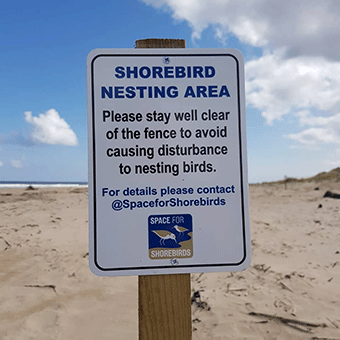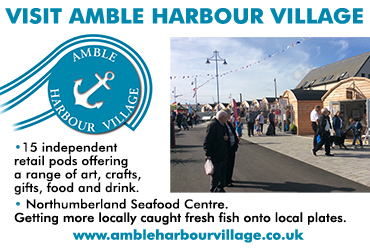Please leave space for shorebirds
Spring is here! All over the world, birds are preparing for spring migration, with some literally travelling to the other side of the globe to reach their summer breeding grounds! It is a great time of year to spot rare and unusual birds which are passing though the UK on their journey north.
Spring here at Space for Shorebirds means one thing – shorebird nesting season is upon us! Last year was our first nesting season since the service was set up, and we learned a lot of valuable lessons about the challenges our nesting shorebirds face, especially ringed plovers.

Ringed plovers are very territorial and begin to establish their breeding territories in March. This often results in disputes among the birds; fluffing up their feathers and charging into each other in a bid to claim the space. They look for high sections of shingle, sand and loose pebbles above the high tide mark to make a nest called a scape – a shallow depression dug into the sand in which they lay four tiny, well camouflaged eggs.
The beach nesting season occurs at the same time that the beaches become busier with people and dogs visiting, meaning they are very vulnerable to disturbance. Incubating adults will leave the nest if they are threatened, leaving their precious eggs vulnerable to predation or trampling. Repeated disturbance to their nest could result in the parents abandoning the eggs completely and moving to less favourable locations to have another nesting attempt.
Throughout the nesting season, with the help of Coast Care volunteers, we will be surveying the coastline for the presence and behaviour of ringed plovers in suitable nesting habitat. From there we can decide whether we can help
by creating a nest protection area using fencing and signage to protect the nest from human and dog disturbance.
The breeding population of ringed plover is red listed for conservation concern. The declines are partially driven by habitat loss, predation and increased recreational use of our beaches. Also, as a wintering species ringed plover have declined by 52% in the past 25 years; so quite a dramatic decline. Therefore, it’s really important we do all we can for this vulnerable species.
We were blown away by the level of support we received for our efforts to protect the ringed plovers last year, and we are extremely grateful. You can help us give the nesting birds a fighting chance of having a successful season by looking out for fencing and signage on your visits to the coast and giving the nest protection areas space to avoid disturbing the birds.
If you see any signs of ringed plovers beginning to form territories or make nests, please do let us know! Contact us through our website (www.spaceforshorebirds.co.uk) or our social media channels: Facebook and Instagram (@spaceforshorebirds), and Twitter (@ForShorebirds). We will post regular updates about the nesting birds throughout the season, so make sure you give us a follow!
As always, thank you again for your continued support, and we look forward to seeing you out on the coast soon!












